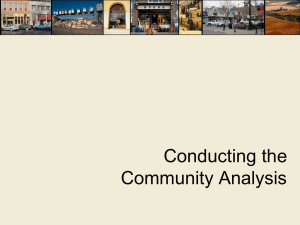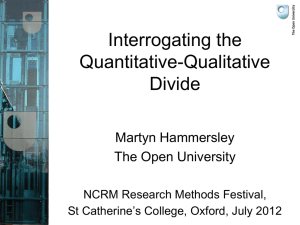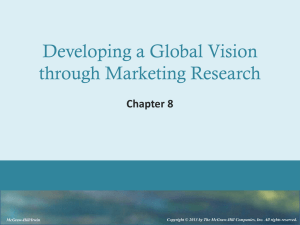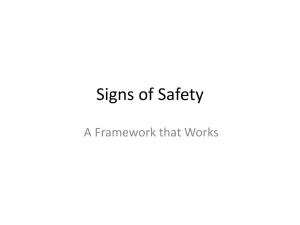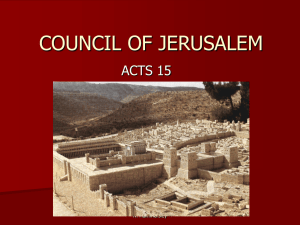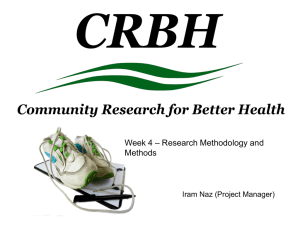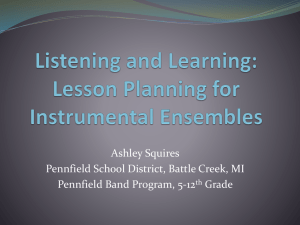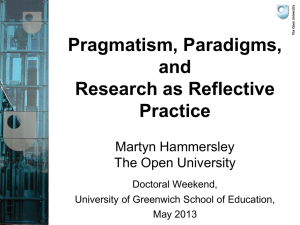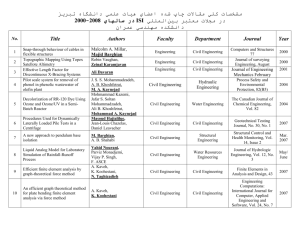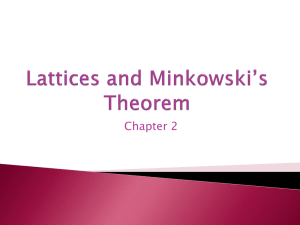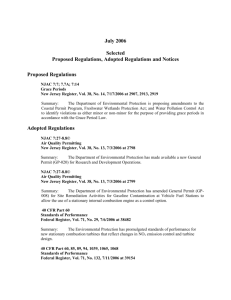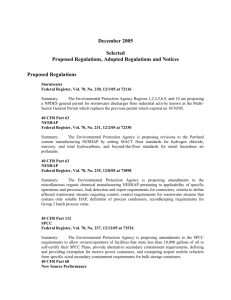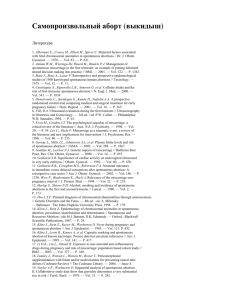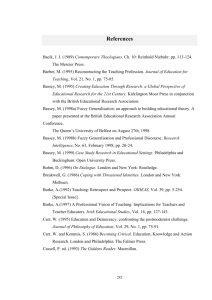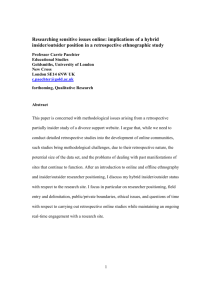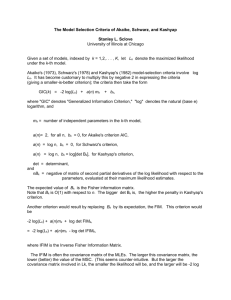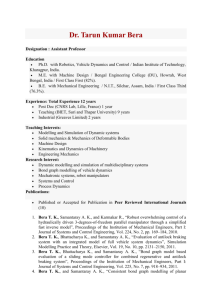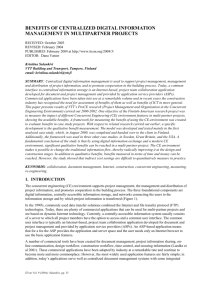keywords - Methodological Challenges
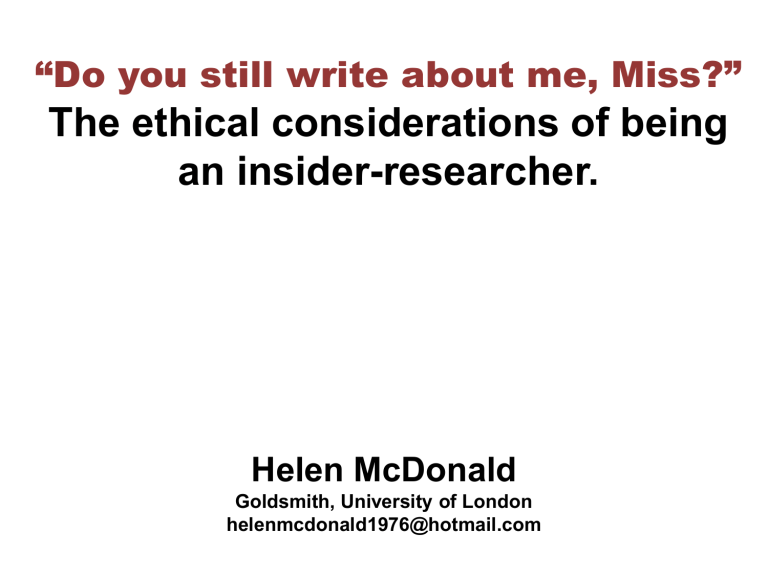
“Do you still write about me, Miss?”
The ethical considerations of being an insider-researcher.
Helen McDonald
Goldsmith, University of London helenmcdonald1976@hotmail.com
What are the experiences of stakeholders within a high performing school as a result of the new student intake generated by the closure of a neighbouring failing school and how can all students be integrated within the same school context? keywords : marketisation of education, school closure, social class
• longitudinal
, ethnographic research at my place of work
• participants are in my year group, research started last academic year when they were in Year 9, data collection will end when they finish their GCSEs at the end of Year
11 next academic year, currently in Year 10 (aged 14-15)
• quantitative data
- teacher assessments, attendance figures and the school’s records of behaviour infringements
• qualitative data
- interviews with parents, students and school staff, non-participant and participant observations
Insider status
• student participants - Head of Year
• parent participants - Head of Year
• members of staff - work colleague
• similar socio-cultural background
• Griffith, A. I. (1998) ‘Insider / outsider: epistemological privilege and mothering work. In
Human Studies.
Vol. 21. p361
– 376.
• Hammersley, M. (1993) ‘On the teacher as researcher’. In Hammersley, M. (ed) Educational Research: Volume One – Current
Issues.
London: Paul Chapman Publishing Limited / The Open University.
1. CONSENT and CONFIDENTIALITY
2. POWER RELATIONSHIPS
3. DETRIMENT AND HARM
4. BIAS
• British Educational Research Association. (2011) Ethical Guidelines for Educational Research . London: BERA.
•
Goldsmiths College, University of London. (2005) Code of Practice on Research Ethics.
London: Goldsmiths.
• Labaree, R. V. (2002) ‘The risk of “going observationist”: negotiating the hidden dilemmas of being an insider participant observer.
In Qualitative Research. Vol. 2. No. 1. p97-122
1. CONSENT and CONFIDENTIALITY
• feeling obliged to take part
• too quick to give consent
• forgetting
• compromising own anonymity
• over-sharing
•
Hammersley, M. and Traianou, A. (2012) Ethics in Qualitative Research: Controversies and Contexts.
London: Sage.
• Shils, E. (1980) The Calling of Sociology.
Chicago: University of Chicago Press.
2. POWER RELATIONSHIPS
• impact of the researcher and demand characteristics
• observations in school
• fear of being judged
• British Educational Research Association. (2011) Ethical Guidelines for Educational Research . London: BERA.
•
Hawkins, B. S. R (1990) The management of staff development in a contracting education service. (Birmingham: Birmingham
Polytechnic)
• Shah, S. (2004) ‘The researcher / interviewer in intercultural contexts: a social intruder! In British Educational Research Journal.
Vol. 30. No. 4. p549-575
“so I don’t know how to word that as a something I don’t like . . . that sounds harsh on those children and
I’m sure not every child that went to Silverside is a wrong-un, that sounds awful as well but now, it’s a different proposition, but I signed up, you know . . . and that makes me feel a little bit like I’m being prejudice and I don’t like the fact that that’s how it makes me feel and it kinda is how you feel . . .”
2. POWER RELATIONSHIPS
• participant power
• Senior Leadership Team versus me
• Scott, S. (1985) ‘Working through the contradictions in researching postgraduate education’. In Burgess, R. (ed)
Field Methods in the Study of Education . Lewes: Falmer Press.
3. DETRIMENT AND HARM
• harm to participants
• harm to institution
• harm to me
•
Hammersley, M. and Traianou, A. (2012) Ethics in Qualitative Research: Controversies and Contexts.
London: Sage.
4. BIAS
• “Whose side are we on?”
• personal gain
• personal class position
• Becker, H. (1967) ‘Whose side are we on?’ In
Social Problems. Vol. 14. No. 3 p239-247
• Lynch, K. and O’Neill, C. (1994) ‘The colonization of social class in education’. In British Journal of Sociology of Education. Vol.
15. No. 3 p307-324
Implications
• how do I ultimately use the content of my
Research Journal?
• how do I stay true to the original critical theory approach of the research whilst continuing to work within the research context?
